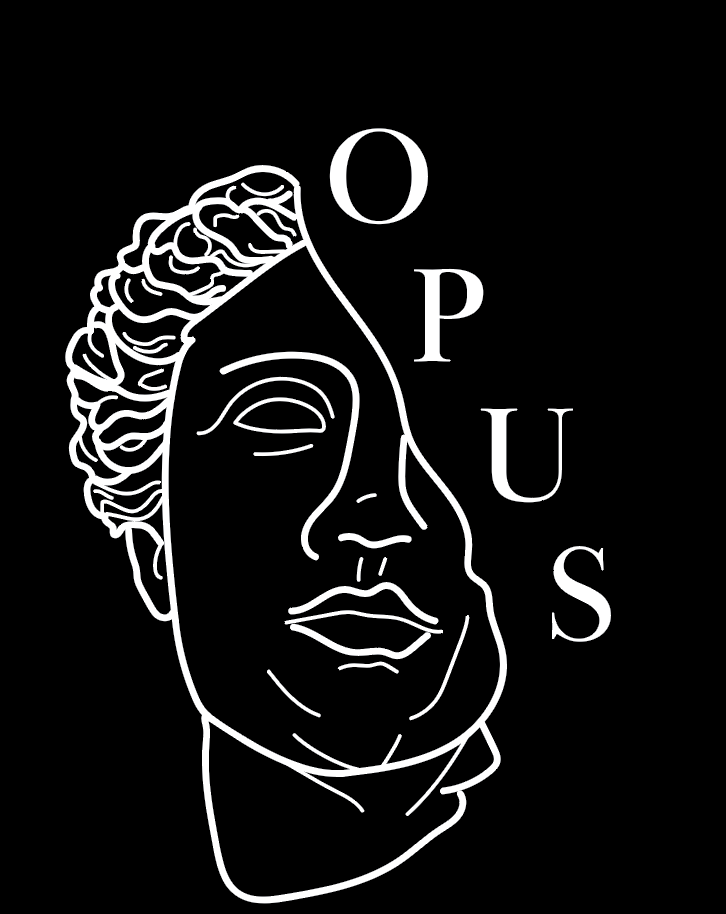How to Say
By Fara Ling
Ah Ma,
A few weeks ago, I realized I have never written Ah Ma a letter. That means I have never told Ah Ma I love you. There’s no way to say it in Hokkien, Ah Ma’s mother tongue. Forcing the syllables wa ai lu to sit next to each other feels wrong. Mom has never heard any Hokkien speaker say that before. Even in English, it’s a clumsy offering. The only time I can tell Mom, Dad, Ah Kong, Kong Kong, or Ma Ma I love you without embarrassment is with colorful pens in cards: birthday wishes, Christmas greetings, and Father’s and Mother’s Day epistles.
Ah Kong shows love by lecturing Dad about health, language, and education: “Lu tnia baba kong. If you weren’t my son, then wa bo chap, I wouldn’t bother.” Kong Kong pesters Mom with offers of financial help and shakes his head when she refuses. Ma Ma simply sighs and smiles and says, “Aiyo, ah girl,” and pays for food every time we eat out.
If I could call Ah Ma on the phone, I’d ask, “Ah Ma chiak pa boey?” because in times of poverty, to have eaten means to be well. If I could visit, I’d make onde-onde kuih, the one dessert I can make with confidence. I would invite Ah Ma to eat with the words, “Ah Ma, lai chiak pui.” But since I can’t do any of those things, I write.
I heard Ah Ma’s name before I could speak. My parents whispered it to me as a baby, when my fat fingers brushed the frames of the photographs Ah Ma stood in. This is how I came to recognize Ah Ma’s face, through photographs as familiar as memory. Ah Kong and Ah Ma’s house is full of them. In the corner of the sitting room, two small tables support frame upon frame of Ah Ma’s family. Ah Ma is in all of them: dad’s university graduation, Ah Chaik’s university graduation, Dad and Mom’s wedding, and finally, yours. Ah Ma wore such dark, rectangular glasses. Instead of looking at the photographer, you looked at the ground while walking down the aisle. I see glimpses of Ah Ma in Si Kor Poh’s house, a photograph of you laughing as you toss a handful of snow into the New Jersey sky. When I first saw snow, I sank my fingers into it, buried my face in it, and hurled it at the heavens. A gesture by which I remember you.
Now, writing to Ah Ma feels like putting on too-small clothes from a long-gone era in fashion. Too much, too late. When I was thirteen, or maybe fifteen or twelve or sixteen, Ah Kong took me upstairs to the tall wardrobe that held all of Ah Ma’s clothes. He pulled out dresses and skirts and rifled through your crusted, browning undergarments. “Take, take,” he insisted. “Take whatever you want.” I couldn’t – I was at least five-foot-six and the waists of Ah Ma’s skirts hugged my body tight. Ah Ma’s buttoned, collared blouses and loose dress pants suit my sister much better than they do me – she’s not quite five-foot-five. She calls Ah Ma’s yellow blouse her “happy shirt,” because it’s such a felicitous hue. She inherited Ah Ma’s hair, wispy and wavy. Like Ah Ma, she enjoys cooking. She bakes bread, fries kuih keria, and improvises on the theme of ayam masak merah.
Dad told us Ah Kong refused (he still refuses) to buy new clothes, so months ahead of his birthday, Ah Ma would shop for shirts and slip them into his wardrobe. Eventually he’d discover them.
“Is this new?” I imagine him asking, fingering the shirt’s starched collar.
“No, no,” Ah Ma told him, “It’s been there for a while already.”
This June, when we visited Ah Kong, he opened up a briefcase that keeps both of your documents safe. I felt the weight of Ah Ma’s nurse’s badge in my hand. I pored over Ah Ma’s wartime birth certificate, issued both in English and kanji in the Imperial Year 2605. I read Ah Ma’s certificate of citizenship, school leaving certificate, and letter of recommendation from headmistress Mrs Poh Sin Bin. Mrs Poh wrote, “she worked hard in school and her conduct was very good.” Sitting on the marble floor in a mass of documents, I wanted to tell Ah Ma I was proud, but like the word love, but how do you say that?
Because I couldn’t inherit Ah Ma’s clothes or hair or hobbies, I tried to show loyalty in other ways. When I met Ah Ma’s step-mother, whom Dad told me to call “Ah Chor” as though she were your real mother, she had trouble remembering who Dad was. Step-Chor sat in a rattan chair and rolled up her pant leg, pointing to where shrapnel had entered her shin during a World War II bombing. I touched the bump of metal, shocked that the weapon had remained lodged in her for so long. Did it not hurt? And yet, calling her “Ah Chor” and smiling felt deceitful to an eight-year-old. I felt obligated to hate the woman who forced Ah Ma to cook and clean the house like a Chinese Cinderella while her birth children played. A few years ago, Dad wanted our family to film a birthday video for one of Ah Ma’s step-sisters. I refused, with a lot of crying and shouting at Dad, who shouted right back. If Ah Ma had been there, you would have told me to do it, because Ah Ma, like all the women in my family, knew how to chiak kor: eat bitterness. By swallowing it whole.
When we went to clean Ah Ma’s grave, Ah Kong cut a path through the weeds with a machete. He, Dad, and Ah Chaik swept Ah Ma’s grave, poured water on the headstone, and scrubbed it with brushes. They didn’t talk much, and they never said Ah Ma’s name. Before that afternoon, I knew Ah Chaik only as “Gorilla,” the uncle who played with Hannah and me, who bought us toys and snacks from Thailand and slept till lunchtime. I had seldom seen him clean anything – when Hannah and I grabbed his arms, our hands would sometimes slide off because of his bodily oil. Fourteen years on, when I close my eyes, I can see Ah Chaik squatting by Ah Ma’s grave, face still, pouring water across the words carved in stone. Ah Chaik never makes his bed, because Ah Ma used to, up to the time you fell ill. I assigned that to laziness, but today I wonder if it is because Ah Chaik foolishly hopes to wake up one day and find Ah Ma eating breakfast outside, waiting to make it again.
Ah Ma, I have never thanked you for naming me, just like you named dad. Ah Kong wanted his firstborn to be called Adam, after the first man, but for some reason hidden to me, you liked the name Adrian. So dad is Adrian and Ah Chaik is Adam. I’m embarrassed to tell people what my Chinese name means, because I don’t deserve such a good name. When I look it up on the Chinese-to-English dictionary on my phone, I read that Sok (or Shu) is an adjective for a woman that means refined, pure, and virtuous, and also beautiful, lovely, and warm. Sean (or Xian) is a noun that means worthy, able, and virtuous person. Sean can also become an adjective, used as an honorific for a person of the same or younger generation as the speaker. A lifetime’s list of hopes and expectations and blessings in two syllables.
Everyone hoped Ah Ma would live till until her first grandchild was born. Yet Ah Ma wouldn’t pray to God for healing, because you didn’t want to trouble him with insignificant concerns. Ah Ma, you were dying. Your body could barely hold all the new medicines the doctors gave you. Mom realized you had begun hallucinating when you asked her, “Why are the windows flapping?” Ah Ma died in April; I was born in May.
If Ah Ma was alive, you’d wonder why I spent so many hours writing and rewriting these letters. “No need,” you’d say. I have nothing of Ah Ma’s voice, so I have to imagine what you sounded like. When I read, I hear a voice saying the words in my head. Sometimes I wonder if that voice is Ah Ma’s. If you could read my words, would you hear me? What else would you say?
When I peer into Ah Ma’s photographs, trying to find a word, a sound, a voice, anything, in your face, I instead see my reflection embedded in Ah Ma’s features: in the eyes that sag in the corners with tiredness, in the mouth that learned to swallow bitterness until its taste disappeared from your lips. Dad and Mom described Ah Ma’s laugh as hearty, a laugh that started from the belly and, nourished by your heart, ran up into your throat and burst from your mouth.
Ah Ma, your first grandchild longs to hear you laugh. She can’t call or bring you frangipanis. She can’t burn paper money or light joss sticks or offer oranges on an altar. So allow her at least to spend a few hours on you, her Ah Ma who named her, who fought to live till her birth. A few thousand words in three letters, what is that? Sok Sean was too young to clean your grave, too big to wear your clothes, too late to meet you, but perhaps she is not too late to hope you knew she would love you.


Leave a Reply